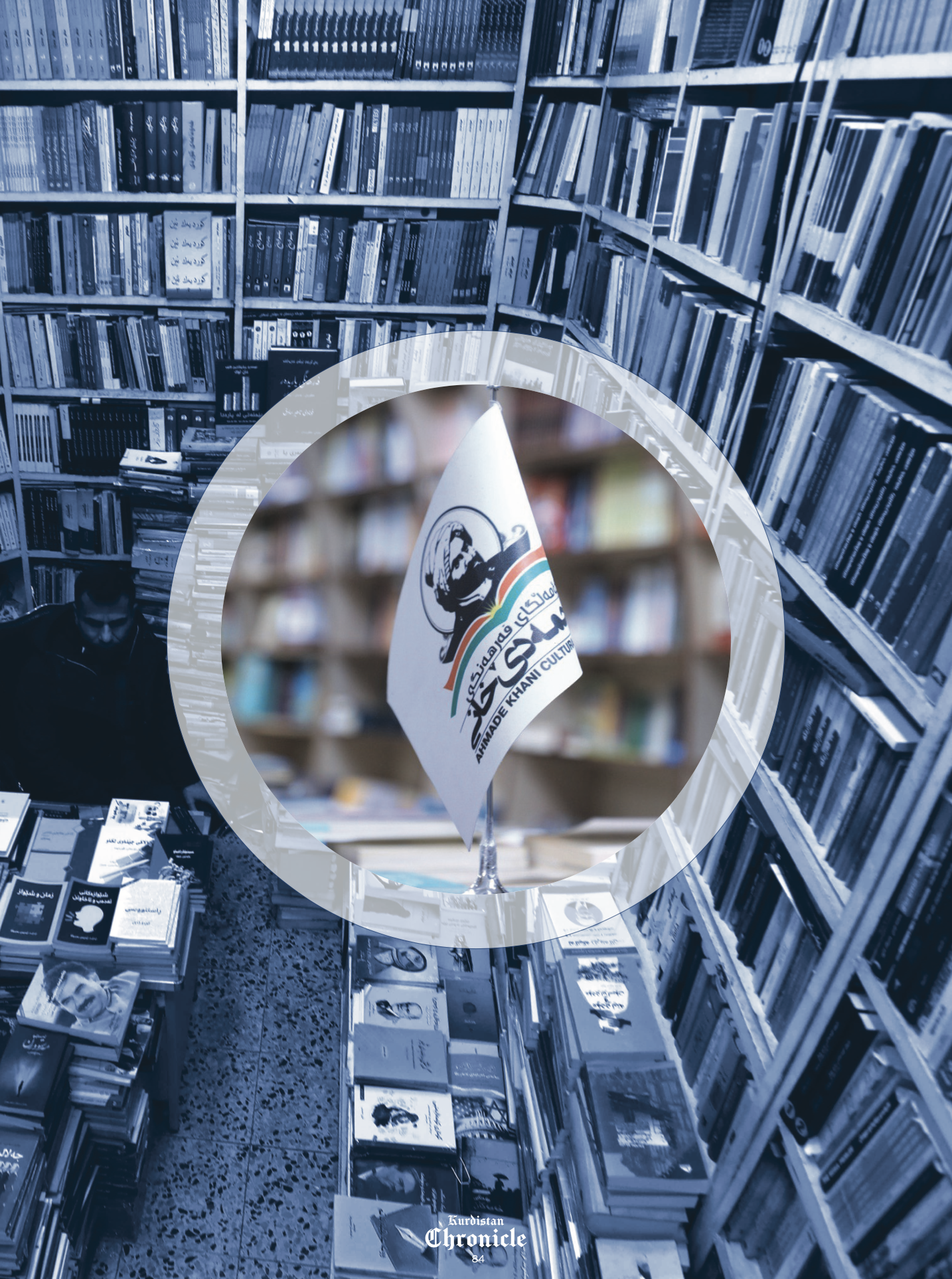After the 1991 uprising and the liberation of Kurdistan, the Kurdistan people genie slowly emerged. Freed from the bottle that they had been imprisoned in by the Ba’ath regime, life began to flourish in all its political, social, economic, and urban aspects, but the rise of culture and knowledge in Kurdistan was also clearly manifested.
Initially, many magazines and newspapers appeared that reflected various intellectual, literary, and political currents and movements. Cultural activities burgeoned, and institutions interested in such activities appeared, including the Sardam Foundation in Sulaymaniyah, the Aras Publishing House in Erbil, and the Spirez Printing and Publishing House in Dohuk.
Despite the lack of modern printing presses in Kurdistan at that time, many interested people established publishing houses across Kurdistan to cover the need for the book, which is a civilized product of knowledge and necessary in any civilized and prosperous society. In order to learn more about the current state of the book and publishing industry in Kurdistan, Kurdistan Chronicle contacted a number of publishers in Erbil, Soran, Dohuk, and Sulaymaniyah to learn their perspectives on the challenges associated with publishing, printing, and marketing physical books.

Shifting generational habits
Azad Barzanji, writer, translator and head of the Sulaymaniyah Sardam Printing and Publishing, spoke to Kurdistan Chronicle about his pioneering institution. According to Barzanji, Sardam was founded by a group of writers in late 1998 and began publishing books in 1999. The demand in the first ten years was strong. There were up to 1,000 copies published for each edition, and these all sold within months, which prompted us to publish again. But, over the last ten years, things have changed.
Barzanji, whose foundation has printed more than 1,500 books, attributed the decline in interest in books to the “tyranny and impulsiveness” of modern social communication and its associated media platform.
Furthermore, he complained that the younger generation lacked interest in books and stressed that most readers hail from older generations. He also explained how there is a lack of book fairs, with only an annual fair in Sulaymaniyah and exhibition in Erbil, and highlights how religious books were the most popular at them. He noted that it was essential to publish in the Kurdish language and underscored the importance of Arabic-language books as a bridge for introducing Arab readers to Kurdish literature, history, and society.
Yet the financial crisis caused this segment of readership to decline further. As for English books, Barzanji said that they are only of interest to the old generation. Barzanji’s pessimism paints a bleak future for physical books, saying: “consumer culture prevails.” Social media networks have impaired the uptake and absorption of the physical book as has the decline of the intellectual and cultural movement.
Who are the readers?
Yaran Hiwa, an active young man who founded Cultural Café with his friends in downtown Erbil, and spoke with Kurdistan Chronicle about his ambitious project: “We established the Mm and Zain Cultural Center in 2018, which welcomes its patrons, who are interested in literature and culture, every day. Academics and writers also meet and discuss various intellectual and cultural issues.”
When asked about the age groups who attend the center, Hiwa said that youth constitute the majority of the center’s visitors. As for the type of books that receive the most interest, he said: “Classic books, such as the Collections of Nali, Mahwi and Malai Jaziri, are generally the most popular. We have books in six languages including English, Arabic, and French and print ten to 15 books a year. The physical book industry is faltering due to the tyranny of the e-book and the advent of digital books.”
Meanwhile, Salim Mustafa Chali, director of the Ahmad Khani Cultural Association Library in Soran, told Kurdistan Chronicle that the library was established in 1993 and now publishes many books – 105 in total – that cover political, social, psychological, and other fields.
Chali stressed that most of the library's visitors are university students who look for books on history, law, and religion. He complained about the lack of visitors during the Erbil International Book Fair last March, which he attributed to the economic situation. He remains optimistic, however, about the future of the book, provided that the government's interest in education and books translates into support for publishers and their projects.

Supporting literature
Awab Abdul-Hamid, director of Jaziri Publishing House based in Dohuk, offered further color on the publishing industry, telling Kurdistan Chronicle about the publishing house’s origins and vision: “My father, Ahmed Abdel Hamid, founded Jaziri in 1988, and I have managed it since 2010. We have printed 580 books, most of which are religious, with psychology and human development textbooks coming in second.”
The publishing house also supports a young readership interested in literature: “In recent years, the number of novels and novelists has increased in Duhok governorate; most of the visitors to our library are young people up to the age of 35.”
Regarding the languages that are widely spread among readers, he said: “The English language is witnessing great demand, so we opened a special branch in Dohuk to sell books that have only been issued in English. Our library started in 2019, with nearly seventy books published annually. There is strong demand for books translated from international languages into Kurdish, as readers prefer translated books – for their themes and styles – more than books originally written in Kurdish.”
A challenging industry
Emad Mohammad Hassan, a writer, translator and lawyer who runs Rosa Printing and Publishing, spoke to Kurdistan Chronicle about his foundation: “Since the establishment of Rosa in 2015, the demand for our books has fluctuated, which is due to two factors: the first is the quality of the readers and publications, and the second is economic conditions.
We initially focused on introducing the Kurdish reader to world literature and tried to publish works of international writers that were unnoticed here in Kurdistan. Thus, out of 60 initial publications, 50 dealt with world literature. Translated novels are our bestsellers. We have been able to attract part of the readership to our publications and, despite difficult financial conditions, have managed to publish 150 books.”
Hassan noted that “the young generation and students make up the majority of our readers.” On readers‘ desired language, he said: “Arabic has elite readers, while English is favored by the young people in general.”
Hassan underlined that the book industry has been declining since the end of the twentieth century due to modern technology. Regarding the situation of the physical book in Kurdistan, he also sounded pessimistic, saying “the demand for a physical book is gradually declining. If there is no serious attention to it, I see the future as bleak.”
Still, at the Erbil International Book Fair held in March 2023, he witnessed a positive atmosphere and energy after a long break and hoped that the exhibition would continue to build on this momentum.
Jan Dost is a prolific Kurdish poet, writer and translator. He has published several novels and translated a number of literary Kurdish masterpieces into Arabic.

